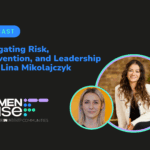Article written by Alex Voskou, Content Specialist at The IN Group.
The word I’ve got in mind, the word that arouses almost as much annoyance, is ‘privilege.’ It’s become the ultimate abridged character assassination, an assertion that whatever role, rank, or bank balance a person may hold is attributable to who they are and where they’re from. That it’s not truly deserved.
The great leveller?
The social instability of 2020 – I’m thinking George Floyd and the riots up and down the US – really sharpened our focus on social inequality. It made us acutely conscious of people who are treated differently. It made us ask ourselves how we treat our fellow human beings and how we can be more tolerant, understanding and respectful.
The pandemic has done the same. In some ways, it’s been a leveller, but in other ways it really hasn’t. There’s been a widely publicised disparity in the effects of COVID-19, with the poorest areas of England and Wales hit the hardest.
While many of us take remote working almost for granted, we don’t all have jobs where remote working is possible. We can’t all afford laptops or broadband. We don’t all work for an employer who can provide us with the tools we need to keep working from home. When organisations issued company laptops to their employees at the start of the pandemic – Investigo was thankfully quick off the mark – they made our daily lives so much easier. You could say it was an act of generosity. A show of trust. A commitment to supporting us. A privilege, even. But I’m not here to get into semantics.
Assumption’s the mother of all…misunderstandings
While attempting to be more understanding and respectful, we need to recognise that using the word ‘privilege’ insensitively can cause problems on many levels.
Picture a large family living in a neglected area, barely scratching by on minimum wage. They’re unlikely to take kindly to being viewed as privileged on the basis of other criteria, such as their ethnicity. Now picture the other end of the scale. A person may acknowledge that they’re privileged in some ways and feel a huge sense of guilt about it – which, in turn, is also unproductive.
There’s a danger that the word privilege can become a tool of one-upmanship – we might be of the same ethnicity, but you’re more privileged than I am because of your gender, for example – which is not conducive to productive debate and instead creates resentment. Does it distract us from actually dealing with issues such as racism and power? Do we need to reenvisage our use of this word? (link here).
In the last couple of years, there’s rightly been a greater focus on groups who may previously have been overlooked. We’ve seen this in business, the media, the entertainment industry and literature, where some have dismissed the traditional classics as the irrelevant, out-of-touch perspectives of the privileged.
However, that isn’t always the case. George Orwell, for example, actively rebelled from his lower-middle-class heritage and chose to experience poverty first-hand, living on the streets of east London in the late 1920s. His work often criticises class inequality and attacks privilege:
“Money for the right kind of education, money for influential friends, money for leisure and peace of mind, money for trips to Italy. Money writes books, money sells them. Give me not righteousness, oh Lord, give me money, only money.”
Keep the Aspidistra Flying by George Orwell
It’s not a competition
I’ve been called privileged a couple of times in the last year, purely on the basis of being male and closer to the ‘white’ end of the spectrum. According to my parents’ ancestry DNA tests, we’re a mixture of Greek, Middle Eastern, North African and a host of other things. Their story is very much the old cliché – arrive in a new country with nothing and start again. Things were by no means easy. I did a bit of moving around as a kid, and it’s fair to say that not everywhere we lived was as diverse or as tolerant as London. When I’m called privileged, I remember all the offensive names I was called as a child by people I’d never even met, simply because I was ever so slightly different to them.
My family’s originally from Cyprus, which has had multiple rulers over the centuries and politically has struggled with ethnic infighting for many years – as have countless other countries. Division, occupation and all the associated hardships don’t necessarily lend themselves to the idea of privilege. But like I said, it’s not a competition.
Respect each other
If there’s one thing the last two years have taught me, it’s not to judge. To be sensitive to the challenges experienced by others. But that should apply to everyone we meet, not only to those we perceive – perhaps erroneously – to be disadvantaged in some way. You never really know what’s going on in someone’s life. Sometimes, judgementalism comes from safety. We judge others to deal with our own potential feelings of shame or inferiority. Sometimes I catch myself doing it and give myself a metaphorical slap around the ear. That’s when it’s important to acknowledge who we are, who we want to be and, most importantly, our own value. As someone once said, “It’s always the ones who know the least about you who judge you the most.”
Don’t judge a book by its cover
People of a certain background are more likely to experience certain benefits or, at the very least, to be exempt from some of the challenges experienced by other demographics. But by making assumptions about people purely based on their gender, their race, their socioeconomic group, or any combination of these factors, we’re in danger of falling into precisely the trap we’re trying to avoid. We’re being judgemental. We’re perpetuating negative stereotypes. Though our need for ratification and the rise of social media are accelerating our hunt for meaning and fellowship, no two people are the same.
At this time, more than any other, we don’t need excuses to emphasise our differences. It’s far too easy to do that. Instead, by singing from the same hymn sheet while acknowledging our different voices, we can actually learn from each other. After all – and here’s another interesting word beginning with P – no one’s perfect.
Share this:




